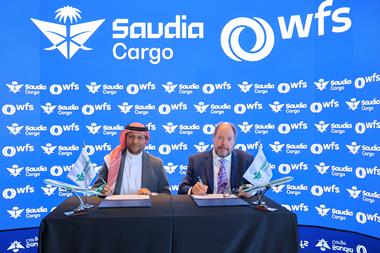OVER THE last seven days Air France chiefs have been squaring up to their furious pilots determined not to be the first to blink, writes Thelma Etim, deputy editor.
The beleaguered French carrier has admitted the strike has been decimating is funds to the tune of €20 million a day.
A statement reveals that the stand-off over the development of low-cost airline Transavia has resulted in “catastrophic consequences for the company’s customers, staff and financial situation”, so maybe it comes as no surprise that the airline has elected to shelve plans to set up subsidiaries in Europe, but is accelerating the project in France.
Alexandre de Juniac, Air France-KLM’s chairman and chief executive (CEO) and Frédéric Gagey, president and CEO of Air France, along with the managerial teams have elected to “postpone the plan to create Transavia subsidiaries in Europe (outside France and the Netherlands), while entering into extended talks about the project and building together the necessary guarantees by the end of the year,” according to a company statement.
“A comprehensive negotiation and explanatory process with Air France and KLM unions will be set up. As for Air France, this process will begin as soon as the next Central Works Council meeting takes place, scheduled for25 September 2014,” it adds.
AF-KLM continues to reiterate that targeting the low-cost market in Europe is “both strategic and urgent for the group’s future, given that this market is fast-expanding and our competitors have adopted particularly offensive strategies on the French market.
“The pilot unions have stigmatised the Transavia project by fuelling unfounded fears of “delocalisation” and “social dumping”, which have never been at stake. Management regrets these mistaken interpretations, but has taken note of the concerns expressed,” the statement adds.
The expansion of Transavia in France is vital for Air France, notably in order to defend the Group’s position at Orly, as highlighted by the experts’ report published in July 2014 and supported by the SNPL. It is now urgent to implement this plan, the statement continues.
“The project was presented to the unions of each staff category over a year ago, but was not finalised within the framework of the talks underway. The pilot unions’ demand to use, on the Transavia network, Air France pilots employed under Air France conditions and to replace the existing 44 B737s by A320s, would inevitably lead Transavia France to failure,” the carrier argues.
“The compromise solutions proposed by management have all been rejected. In these conditions, if the pilot organisations do not agree to the economic and social terms and conditions of the project put forward, Management will be forced to begin the formal procedure for denouncing the agreement to create Transavia France (signed in 2007). This agreement currently restricts the development of Transavia France; its withdrawal will make it possible to implement the project more quickly.”
The company aims to rapidly equip Transavia in France with additional aircraft beyond the 14 currently in the fleet.
“It should be remembered that this project included the creation of 1,000 jobs over the next five years, including 250 jobs for French pilots. It will now be possible to hire staff faster. The project will, as expected, be primarily open to Air France pilots on a voluntary basis,” adds the statement.
It also underscores that Transavia in France is not intended to impact point-to-point activity on the French domestic network and will not feed the Air France hub at Paris-Charles de Gaulle.
“To remain in the race in Europe, we have no alternative than to rapidly expand Transavia. We are now taking every measure to explain and accelerate its growth out of France. The Air France-KLM Group is reaffirming its aim of reaching a fleet of more than 100 Transavia aircraft by 2017," argues Juniac.
Gagey adds: "These decisions must enable us to restore calm within the company and end the strike that has lasted too long for Air France, its customers and its staff










